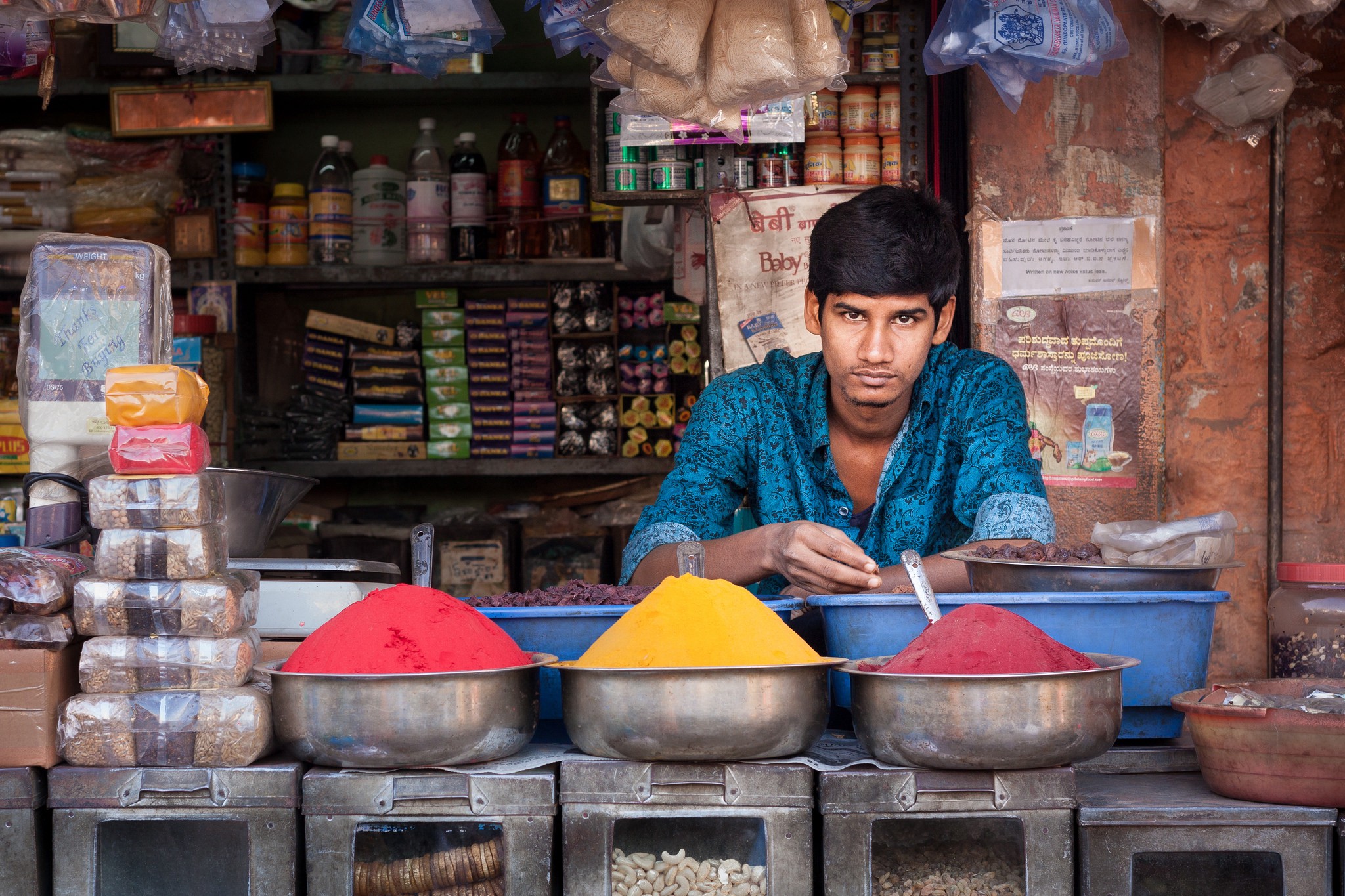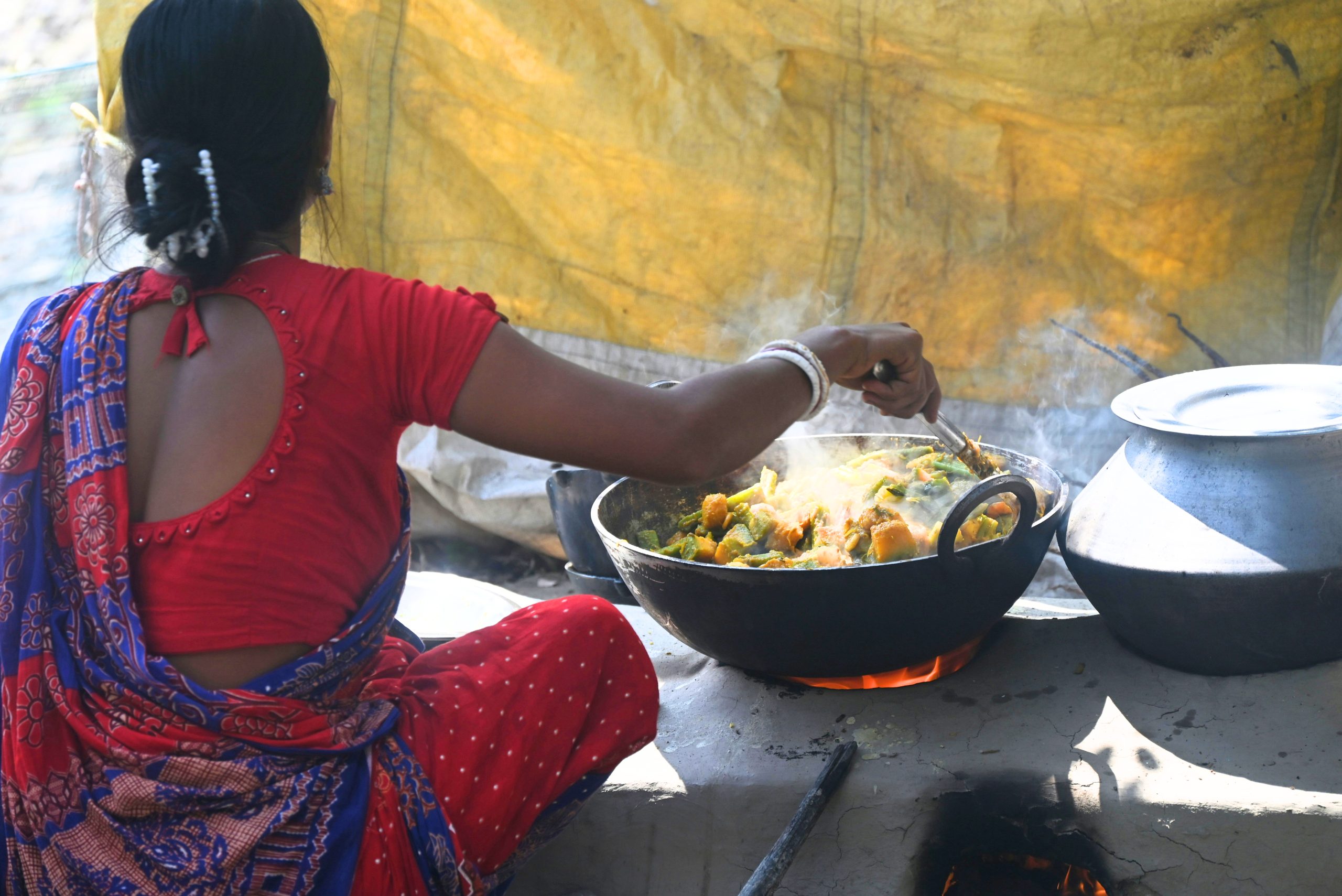interviews
Wealth and Family in the New India
Authors Vivek Shanbhag and Mihir Desai discuss a new literature for a country on the rise

The economic transformations of India and China over the last three decades eclipse even the global financial crisis as the defining economic story of our generation. That story is usually told with GDP figures and stock market levels. But it has also transformed lives, relationships, and families.
Vivek Shanbhag’s Ghachar Ghochar (excerpted on Recommended Reading in February) is a taut, exquisite tale that employs the material progress of a family to create a haunting story of greed. This work, and its translation from Kannada by Srinath Perur, has already earned comparisons with Chekhov and has been dubbed the newest “great Indian novel” by the New York Times. As a professor of finance at Harvard Business School, a new author, and a teacher with a keen interest in literature and the humanities, Ghachar Ghochar resonated with me on many levels.
Shanbhag was born in a small coastal town in Karnataka. He trained as an engineer and became a manager at Hindustan Lever — one of the most prestigious jobs possible in late-1980s India, comparable to getting an engineering job at Google today. That trajectory from limited means in a small town to traversing the country for a multinational firm allowed Shanbhag deep insight into modern India and the various complications of rapid economic growth.
Vivek and I communicated with each other via email for this interview.
Mihir Desai: One of my favorite lines in your novel is “wealth shouldn’t strike suddenly like a visitation, but instead grow gradually like a tree.” Given the rapid economic ascent of the family at the centre of Ghachar Ghochar, is it right to read the book as a broader study of changes in India over the last two decades? Why is the rapid accumulation of wealth so complicated?
Vivek Shanbhag: There is no doubt that the changes in India over the last two decades have had a significant impact on the lives of the characters in the book. However, as a writer I would hesitate to say my book represents this or that. In other words, I can’t write a book to represent something. I write stories. Here, in Ghachar Ghochar, I have told the story of this specific family. The moment I decide my characters must represent something I rob them of their sensitivity and freedom to act. I believe only fiction can effectively capture the complexity of change this country has gone through in recent decades.
Rapid accumulation of anything — even when it happens inside our body — is complicated. Since money is one of the biggest influences on family relationships, sudden change in wealth has the power to mess up everything. This jolt is strong enough to break many delicate strands that connect individuals to communities. Unfortunately this disconnects them from their language, from their value system. The image I have used in the past to describe this situation in India is that of a trapeze artist in mid-air who has released the bar not knowing which one of the swinging bars to latch on to for a safe landing.
I believe only fiction can effectively capture the complexity of change this country has gone through in recent decades.
MD: Your portrait of the effects of greed seems completely distinctive. Usually, greed is depicted as an animating force for wealthy people who can’t get enough; in your portrait, greed seems to happen at a much smaller scale and is disempowering as it spreads. You write, “it’s not we who control money, it’s the money that controls us. When there’s only a little, it behaves meekly; when it grows, it becomes brash and has its way with us. Money had swept us up and flung us in the midst of a whirlwind.” How and why do you think greed is so insidious?
VS: I am glad you noticed this. Wealth has a different meaning in the Indian tradition. There is a certain limit beyond which every individual or family considers their lives “luxurious.” This is a complex perception and is different for every individual, family, caste, and generation. Millions have crossed this line in India in the last two decades, because the money required to cross it was not huge in absolute terms. This gives people a kind of confidence to challenge intricate community structures and hierarchies. The dependencies within a community that were formed to make up for the lack of money become redundant in the new world. As the existing binding force disappears, a new one is created. However, it takes a while for the new order to come into place. It is during this transition that wealth can become disempowering. The newer generation has a different line to cross before they move into their zone of luxury, but it may not be within reach as it was to their previous generation. This is a tough challenge considering the aspirations of the newer generation.
Wealth has a different meaning in the Indian tradition. There is a certain limit beyond which every individual or family considers their lives “luxurious.”
MD: I know a little bit about your background and I’m curious if the narrative drew on your own personal experience. Having ridden the economic wave that transformed India over the last two and a half decades, do your own experiences show up in the book?
VS: The process of writing is so intense, and I would have seen the situations and characters so closely, that at the end of writing a book everything that I write becomes my own personal experience. As it happens with every creative writer, I have used some of my own experiences. But in the end I feel there is no difference between real and imagined — everything becomes my own experience. The joy of writing is when something unexpected emerges — even a small detail — which then shows everything else in a different light. This is to know what we already know in an entirely different way. I long for such moments.
MD: I was struck by how refreshing it was to read a novel steeped in the economics of households. It seemed like the characters were shaped by these material circumstances and their changing nature — why do you think writers ignore these conditions and why do you think they’re so formative?
VS: One can broadly say that unlike in the West, the smallest unit of society in India is a family, not an individual. Family is also the most influential unit. What I mean is, important decisions that affect individuals are taken factoring in the family. Hence, it is impossible to ignore the economics of households if one is looking to capture the current reality of India. As I said earlier, the idea of the family is undergoing a transformation. As a result, there is tension between the traditional structure and new aspirations. Writers in Indian languages have captured this effectively.

MD: Given your fluency in English, can you talk about your choice of the language you write in and how the choice of language changes what you write about or how you write?
VS: Creative writing requires a very deep engagement with the language. It is not just about how fluent one is with the language, but the strong emotional connect one has with the language. Through the language, a fiction writer seeks to touch and grasp unknown dimensions of life. It must flow effortlessly at the time of writing — a word must generate the next word and so on. “Paroksha,” a Sanskrit word which can roughly be translated as indirect cognition, represents an important and powerful aspect of literature in Indian languages. To put it simply, nothing in literature is direct: when you say something you point at something else. This can be realized only when you have strong bonds with a society and its language, which is usually the language of the street. Music, dance, folk-songs/tales, and proverbs are born from the language of the street, which has very deep connections with the everyday life of people. As a writer, it is very important for me to immerse myself in this language if I want to capture the nuances of this world. So I had no choice but to write in Kannada. English is not the language of the street in any part of India.
I had no choice but to write in Kannada. English is not the language of the street in any part of India.
MD: The novel has garnered favorable comparison to Anton Chekhov, Edith Wharton, and Edgar Allan Poe. Can you tell us more about your favorite authors, living and dead?
VS: Kannada has a strong and unbroken literary tradition of over thousand years. By “unbroken tradition” I mean we still have access to literature written a thousand years ago. People recite some of these verses at home or on special occasions or at family events. These works are studied and discussed by students of literature. I grew up reading and rereading many Kannada writers. We have a rich literary tradition where Kannada texts and western literature are discussed with the same enthusiasm. Apart from many ancient and modern Kannada writers, my favorites include Isaac Bashevis Singer, Tolstoy, Melville, Katherine Anne Porter, Jose Saramago, Hemingway, Joyce….
MD: You’re organizing a literary dinner party and can invite any three people, living or dead — who would you choose?
VS: Tolstoy. Allama (12th century Kannada poet). Katherine Anne Porter.
MD: Ghachar Ghochar has emerged as a literary sensation and must have far surpassed your expectations — what have you learned from the incredible reception this book has received?
VS: I grew up reading literature not just in my own language Kannada but also from different languages of the world. So my inner world is made of all these wonderful writers from different languages who came to me in translation. I felt I became part of this group when my book went into so many countries and languages. It is a wonderful and humbling experience for any writer.









